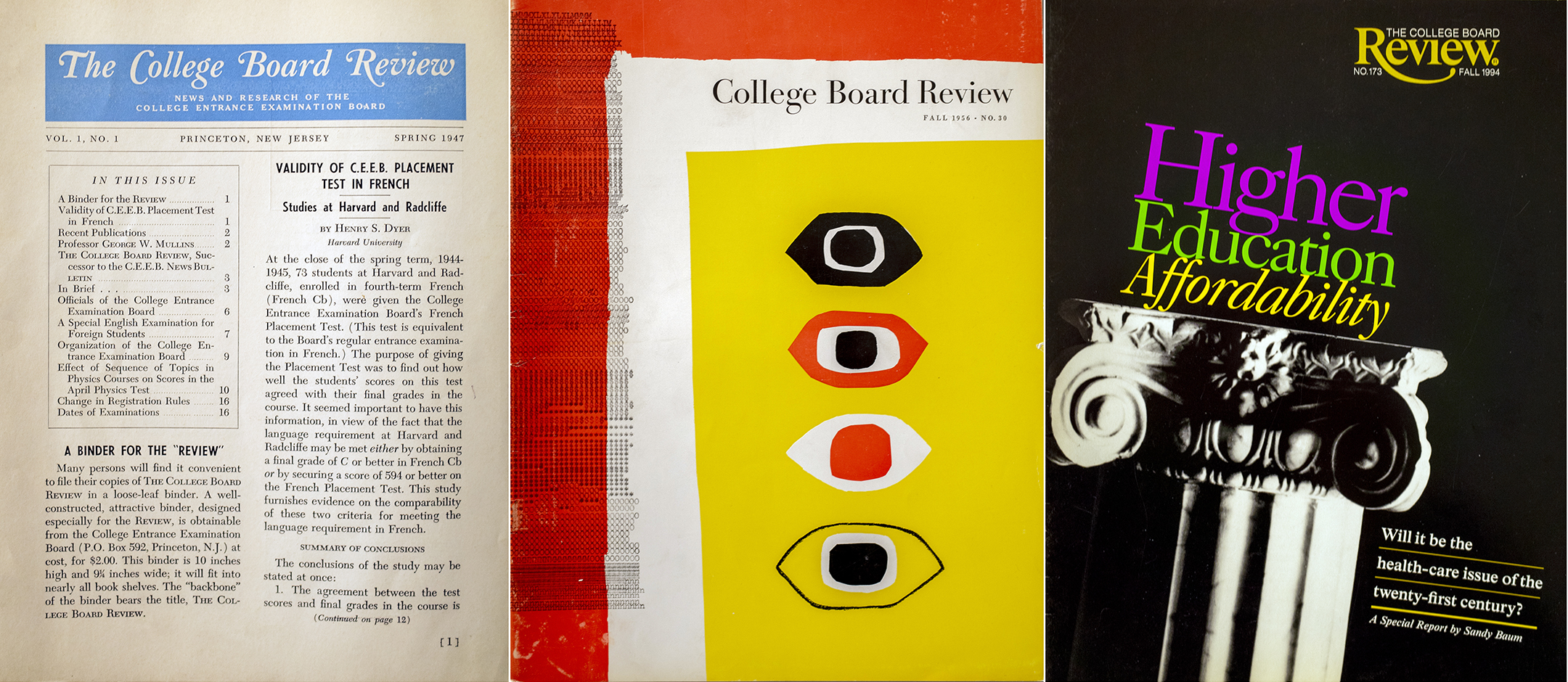
News
Welcome to The Elective
The new digital magazine from College Board aims to be a smart, authoritative, and irreverent voice in the education conversation
In the early 1970s, American students, parents, and educators faced wrenching change. Protests roiled college campuses; school districts grappled with desegregation and busing; administrators questioned the value of standardized testing; and new technologies began upending classroom traditions. The College Board Review—an issues- and conversation-driven magazine published from 1947 to 2007—described this moment as the “creative tumult of modern education” and dedicated itself to examining it with an “objective eye.”
More than 50 years later, American education is in a similarly tumultuous state. New skirmishes in old battles have flared up as this generation confronts its own challenges. And that’s why the time is right to again cast an objective eye on the seismic shifts shaking up how we learn and who has access to essential opportunities.
Welcome to The Elective, the new digital education magazine from College Board.
A successor to the old Review, The Elective will focus on the pathways to higher education—whether a four-year university, a community college, or vocational program. But more broadly, this is a space for open, lively, and honest discussion about the issues, opportunities, challenges, quirks, and cultural footprint of education.
Our stories will be reported and research-driven, but also engaging and entertaining. A piece about class-rank confusion will sit alongside a rundown of the many times the SAT pops up in movies; an in-depth author interview will appear alongside a guide on incorporating Minecraft in the classroom; a news story on the shortage of school bus drivers will lead to an explainer on why school buses are yellow. In Fan Mail, a weekly feature, we’ll call out and respond to student and teacher feedback about the College Board. And we’ll dust off some truly excellent—and surprising—stories published by the Review in the From the Archives section.

We’re like you: We have questions—lots of them—about the world of education in the third decade of the 21st century. What role will artificial intelligence play in the classroom? What’s the deal with the No. 2 pencil? How can quality education, scholarships, and tools of success reach historically underrepresented populations? Should classrooms ban phones? Are schools designed as impenetrable citadels negatively affecting students’ educational and emotional development? How will climate change impact how students learn and teachers teach?
That’s just for starters. We may never come to a single answer on any issue—after all, many issues the nation faces today would be familiar to students and others in the 1990s, the ‘60s, the ‘40s—but we want to have the discussion. We need to have it, and with as many people as possible: students, parents, professionals—anyone with a stake and interest in education.
But this can’t be an echo chamber. The Elective doesn’t aim to communicate in one direction only, as the Review’s editor wrote in its first issue 73 years ago. We want students, parents, teachers, counselors, College Board friends and skeptics alike to be active participants in this conversation by sharing their stories, ideas, and viewpoints. Submissions are always welcome.
Education is a subject that inspires passion and fervor, and The Elective enters the arena at a particularly contentious moment. We wouldn’t have it any other way. We aim to be a smart, authoritative, and irreverent voice in this conversation. And unless we’re doing it wrong, this publication should be a fun read that’s accessible to anyone.
But be sure to jab us in the nose once in a while, to keep us honest.


